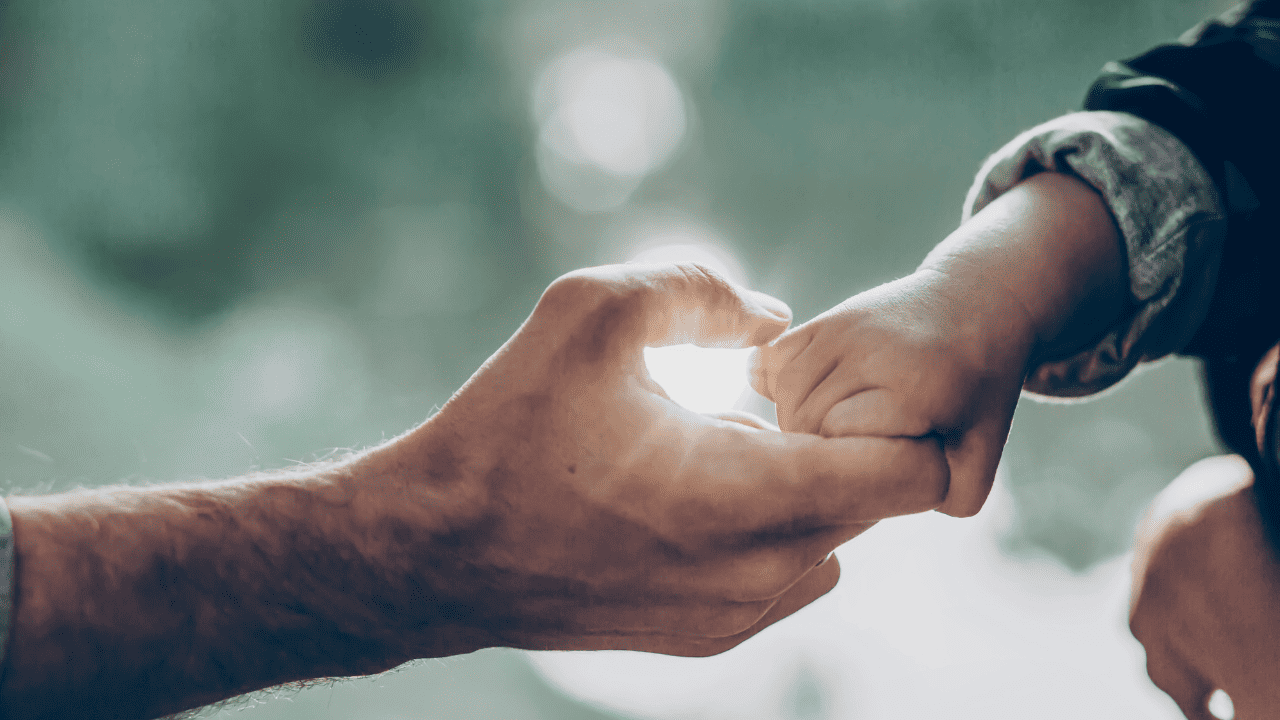 | | | | About the Author Melissa Weekes is a Product Development Specialist. Prior to joining Great Kids® in 2018, she worked as a home visitor with Public Health Services where she used the Growing Great Kids® Curriculum. Melissa lives in Nova Scotia, Canada, with her husband and enjoys any opportunity to be creative! |
“What is addiction, really? It is a sign, a signal, a symptom of distress. It is a language that tells us about a plight that must be understood.” Alice Miller6
I think it’s fair to say that, just like other illnesses, no one wakes up and decides to have a substance use disorder. For many, a childhood history, a painful experience, or an unmet need for acceptance and belonging initially leads to substance use.
Often, that story begins early in life through stressful or Adverse Childhood Experiences, known as ACEs. ACEs can include things like abuse, neglect, and challenges in the household or community.1,2
Research tells us that the more ACEs a person experiences, the greater the chance of developing a substance use disorder later in life.2 In the general population, ACEs are common, so it shouldn’t come as a surprise that substance use disorder is also common.
Consider the following statistics:
- in 2021, 1 in 17 people worldwide misused controlled substances,9
- in 2019, over 20 million people in the US were diagnosed with substance use disorder,7 and
- it’s estimated that around 21% of the population of Canada will experience a substance use disorder in their lifetime.3
As overwhelming as these statistics may be, these numbers only partially represent the impact of substance use on populations – the tip of the iceberg. That’s because we know that substance use impacts not just individuals but entire families and that the impacts can be magnified for young children who are forming attachment relationships with their parents, which in turn can perpetuate the cycle of adversity.4,8
Truly, the need is great, but thankfully, there is HOPE.
Great Kids® is passionate about supporting parents and families to be their best despite the challenging circumstances they may be facing. For a long time, the unique needs of families recovering from substance use disorders have been on our hearts and minds, and now we’re thrilled to share a curriculum manual tailored to these needs.
Hope at Home can be used with any parent who has made a decision to begin recovery.
For some families, this manual will be the very start of their recovery journey, while for others who are further along in their recovery, Hope at Home can be used alongside their treatment and services plan or other professional supports. And because setbacks or reoccurrences of substance use are part of the recovery process for many people, the conversations in this manual support parents to continue looking ahead despite the obstacles they may face.
Hope at Home harnesses the power of parents telling their stories, building healthy relationships, practicing self-care, and taking steps to strengthen their families. It takes into account the brain changes that happen during substance use and supports parents to make sense of their own journey while reflecting on their child’s world, bolstering critical parent-child attachment relationships.5
Finally, the best part about Hope at Home is that YOU can be the link that encourages parents and families on their journey toward recovery. Your involvement can motivate individuals to begin or continue treatment, foster family healing, and spark HOPE for the future.8
If you’re interested in learning more about Hope at Home or our RISE course, click here.
Hope at Home can be purchased alone or as part of a Family Strengthening Package, which includes Growing Great Families® Next Generation, a more generalized family-strengthening curriculum that can be used with any family or in conjunction with Hope at Home. If you’d like to learn more about our Family Strengthening Packages, click here.
For a limited time, you can get Hope at Home for $50 off to honor September as National Recovery Month.
References:
1. ACE Resource Network. (2021). The story of your number is the story of your ACE history. https://numberstory.org/
2. Canadian Centre on Substance Use and Addiction. (n.d.). Adverse childhood experiences. https://www.ccsa.ca/adverse-childhood-experiences
3. Canadian Mental Health Association. (n.d.). Substance use and addiction. https://ontario.cmha.ca/addiction-and-substance-use-and-addiction/
4. Lander, L., Howsare, J., & Byrne, M. (2013). The impact of substance use disorders on families and children: From theory to practice. Social Work in Public Health, 28(3-4), 194-205. https://doi.org/10.1080/19371918.2013.759005
5. Lowell, A. F., Peacock-Chambers, E., Zayde, A., DeCoste, C. L., McMahon, T. J., & Suchman, N. E. (2021). Mothering from the inside out: Addressing the intersection of addiction, adversity, and attachment with evidence-based parenting intervention. Current Addiction Reports, 8(4), 605–615. https://doi.org/10.1007/s40429-021-00389-1
6. Miller, A. (1993). Breaking down the wall of silence: The liberating experience of facing painful truth. Plume.
7. National Institute on Drug Abuse. (2022, March 28). NIDA IC fact sheet 2023. https://nida.nih.gov/about-nida/legislative-activities/budget-information/fiscal-year-2023-budget-information-congressional-justification-national-institute-drug-abuse/ic-fact-sheet-2023
8. Substance Abuse and Mental Health Services Administration. (2020). Substance use disorder treatment and family therapy: Treatment improvement protocol (TIP) series no. 39. SAMHSA publication no. PEP20-02-02-012. https://store.samhsa.gov/sites/default/files/SAMHSA_Digital_Download/PEP20-02-02-012-508%20PDF.pdf 9. United Nations Office on Drugs and Crime. (2023, June). World drug report.https://www.unodc.org/unodc/en/data-and-analysis/world-drug-report-2023.html


